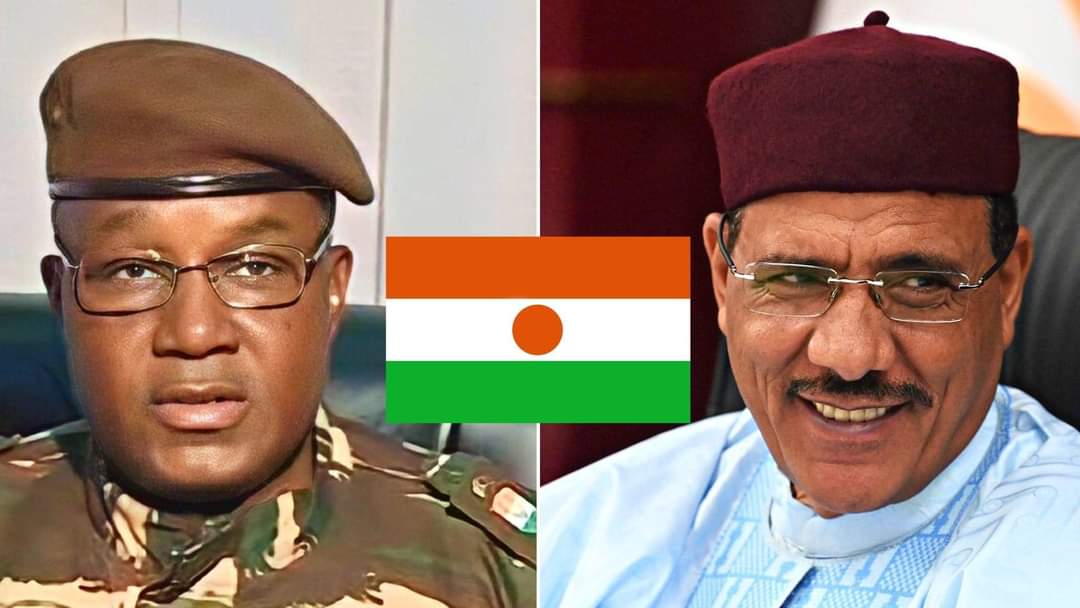The Complex Quandary of Niger:* Balancing ECOWAS Tensions and Western Entanglements

*The Complex Quandary of Niger:* Balancing ECOWAS Tensions and Western Entanglements
By Danjuma Katsina
The recent coup d'état in Niger has propelled the nation into one of the most intricate and challenging situations it has faced, not only within its own history but also across the entire West African region.
This coup, executed by a military faction lacking both organization and foresight, can only be aptly described as a chaotic and misguided endeavor. In the aftermath of the coup, these military leaders found themselves aligned with an unexpected partner, seeking assistance from the infamous Russian mercenary group known as Wagner.
Regrettably, the motives behind this coup were far from noble or aimed at national progress. The turmoil was fueled by internal disputes, specifically stemming from the discord between a bodyguard and the individual under their protection, with ethnic undertones further exacerbating the situation.
While I remain unconvinced of the merits of the military intervention by the Economic Community of West African States (ECOWAS) in Niger, I strongly advocate for the bolstering of our own armed forces to combat domestic terrorism across various regions of Nigeria.
Nevertheless, what lies ahead for Niger, even without the prospect of ECOWAS intervention to reverse the coup? Will the outcome be favorable? Unfortunately, the answer is far from optimistic. The nation's predicament can be likened to the challenge of marrying off a handicapped woman to a distant destination like a ten-story building.
The soldiers who, through brute force, seized control of Niger, declared their intention to forge a close alliance with Russia—a move that coincides with Russia's ongoing conflict with the West, particularly in its engagement with Ukraine.
However, the pertinent question arises: will Western powers permit Niger to align itself with Russia? Given the existing global scenario, where the United States and its Western allies have united against Russia, does Niger possess the necessary economic and military prowess to engage in a confrontation and challenge the dominance of Western European influence on its soil?
The soldiers who have taken charge in Niger have inadvertently plunged the nation into disarray, wedged uncomfortably between two opposing forces. The situation presents a grim dichotomy: either ECOWAS intervenes militarily to reinstate the ousted government, potentially sparking an interminable conflict, or the pressure exerted by ECOWAS member parliaments dissuades the use of military action, leading to ECOWAS abandoning the impending war altogether.
Should ECOWAS withdraw its involvement, the Western powers are likely to devise their own strategies within the nation, potentially exacerbating the crisis by instigating a civil war and thwarting any prospect of lasting peace. In such a scenario, Niger would inevitably turn to its neighboring countries for support, with Nigeria playing a pivotal role. Alternatively, a group of ambitious soldiers might once again alter the governmental landscape in a bid to quell the turmoil before it escalates further. Yet another option is for the coup-instigators to recognize the futility of their current path—a path that offers no escape, akin to a mouse trapped in a hole, not a rabbit hole with multiple exits. Engaging in reconciliation talks and relinquishing power could potentially secure immunity from prosecution.
In every conceivable manner, a faction of soldiers has propelled Niger into a precarious abyss, the repercussions of which are felt not only within West Africa but across the entire global stage.
Muhammad Danjuma
Is a publisher of an online Newspapers.Katsina Times @ www.katsinatimes.com and jaridar taskar labarai @ www.jaridartaskarlabarai
07043777779 08057777762.

